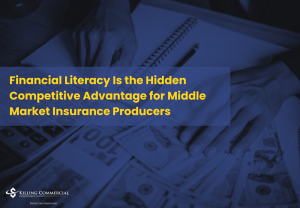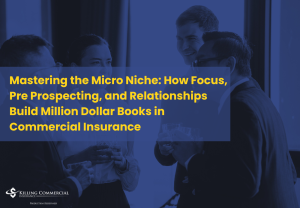
Financial Literacy Is the Hidden Competitive Advantage for Middle Market Insurance Producers
Most commercial insurance producers believe their edge comes from relationships, market access, or quoting speed. Those things matter. But at the middle market level, they are no longer enough.
The producers who consistently win larger accounts, earn underwriter trust, and build long term career leverage all share one trait that rarely gets talked about openly.






Responses